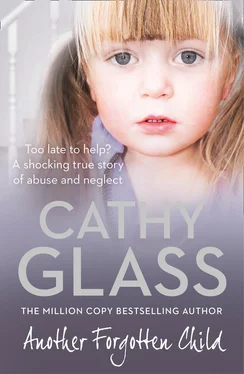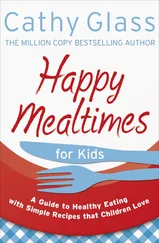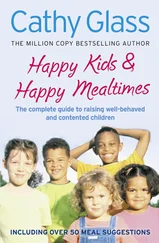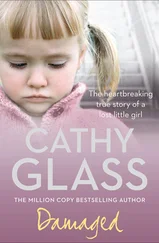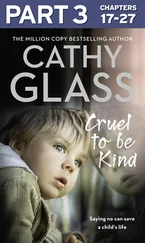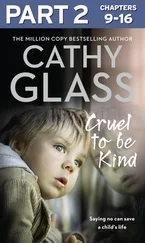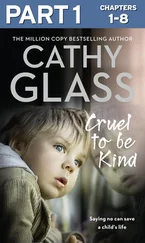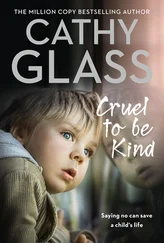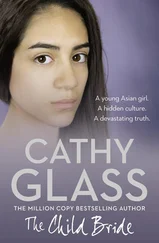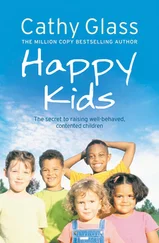Should Have Done More Chapter Seven: Should Have Done More Chapter Eight: Meeting Susan Chapter Nine: ‘He’s Horrible’ Chapter Ten: Poor Role Models Chapter Eleven: The Phone Call Chapter Twelve: Craig Chapter Thirteen: More Trouble Chapter Fourteen: Keep Asking Chapter Fifteen: Quiet and Withdrawn Chapter Sixteen: Serious Allegation Chapter Seventeen: Problem Family Chapter Eighteen: Flashback Chapter Nineteen: Hatchet Chapter Twenty: ‘Father Christmas Didn’t Come to My House’ Chapter Twenty-One: Going for Gold Chapter Twenty-Two: Perfect Christmas Chapter Twenty-Three: A New Year Chapter Twenty-Four: Jason Chapter Twenty-Five: A Winner Now Chapter Twenty-Six: Progress Chapter Twenty-Seven: A Chance Meeting Chapter Twenty-Eight: Peter Rabbit Chapter Twenty-Nine: The Visit Chapter Thirty: An Incredible Family Epilogue Acknowledgements Exclusive sample chapter Cathy Glass About the Publisher
I called goodbye to Paula and Lucy, and Aimee and I left for school at 8.00 a.m. as planned. This would allow half an hour to drive through the traffic so that we arrived at school – on the opposite side of the town – well before the start of the school day at 8.50. This morning I wanted to go into school before the other children so that I could introduce myself at reception and, I hoped, meet Aimee’s teacher or the member of staff responsible for looked-after children. All schools in England now have a designated teacher (DT) who is responsible in school for any child in care. The child is taught as normal in class but the designated teacher keeps an eye on the child, attends meetings connected with the child, and is the first point of contact for the social services, foster carer, child’s natural parents and professionals connected with the case.
As I helped Aimee into the child seat in the rear of my car she asked why she had to sit in this seat and I explained it was so that the seatbelt could be fastened securely across her to keep her safe. She had no idea how to put on the seatbelt and I showed her what to do, how to fasten it, and then I checked it was secure. I closed the car door, which was child-locked and therefore couldn’t be opened from the inside, and climbed into the driver’s seat. I started the engine and reversed off the drive. As I drove, Aimee asked many questions about the car and how I drove it, as though being in a car was a new experience for her, so that eventually I asked: ‘Aimee, have you ever been in car before?’
‘Only with the social workers yesterday,’ she said. ‘But it was dark and I couldn’t see what was happening. Mum and Dad use buses.’ Which was another indication of just how disadvantaged Aimee’s background had been. For a child in a developed country to have reached the age of eight without regularly riding in a car was incredible; I’d never come across it before. Even if a child’s parents didn’t own a car (not uncommon for children in care) the child had usually been a passenger in the car of a relative or friend’s parents; usually someone the child knew owned a car. But I believed Aimee when she said her first experience of riding in a car had been the day before, for her curiosity and questions about my car and driving it seemed to confirm this and were unstoppable: ‘What’s that blue light for?’ ‘Why’s that number moving?’ ‘Why you holding that stick?’ ‘I can hear a clicking!’ ‘There’s an orange light flashing!’ And so on and so on.
Although I was happy to answer Aimee’s questions, I soon began finding her constant dialogue very distracting while I was trying to drive through the traffic. A few minutes later I asked her to sit quietly and save her questions for when I’d stopped, as I needed to concentrate on driving. She did briefly and then began a running commentary on what was happening outside her window: ‘There’s a man with a big dog.’ ‘That girl’s going to school.’ ‘I saw a bird, Cathy!’ ‘Look at that lady’s hair! Cathy! Look! Look!’
‘I can’t look, love,’ I said more firmly. ‘I’m driving. I have to concentrate on driving or we’ll have an accident. Let’s listen to some music.’ I switched on the CD player, which still contained a CD of popular children’s songs and nursery rhymes from the last child I’d looked after. Aimee listened and then I said, ‘I expect you know most of these nursery rhymes?’
‘No,’ Aimee replied.
So I guessed Aimee’s parents hadn’t recited, sung or read nursery rhymes to her as a child, although I thought she would have seen them in children’s programmes on television.
‘Your mum and dad had a television, didn’t they?’ I said, glancing in the rear-view mirror.
‘Yeah, a great big telly,’ Aimee said. ‘A lot bigger than yours.’
‘Didn’t you watch children’s programmes like CBeebies ?’
‘Na, they’re silly,’ Aimee sneered.
‘What did you watch, then?’ I asked, half anticipating her reply would include a list of adult programmes.
‘Me and me mum watched EastEnders and horror films,’ Aimee said. ‘There was one about a woman who got chopped up with a big axe. First the man chopped off her arms and all blood spurted out of her shoulders, but she kept on walking ’cos she was a zombie. Then the man stabbed her in the face so her eyes came out, then he chopped off her head and it rolled on the floor and there was all blood spurting out of her neck and you could see her brain on the floor and –’
‘All right, Aimee, that’s enough, thank you. I understand,’ I said, my stomach churning. Many parents don’t realize the damage that can be done in allowing young impressionable minds to watch such horrific images.
‘ EastEnders is on tonight,’ Aimee added, as I pulled up outside the school.
‘So I believe,’ I said. ‘But we won’t be watching it.’
‘I will!’ Aimee said.
‘Not while you’re living with me. That programme is for adults. You will be able to watch children’s programmes.’
Aimee pulled a face. ‘What about Texas Chainsaw Massacre or Friday the 13th ? You got those DVDs?’ she asked.
‘No. But I have got Mary Poppins, Toy Story, The Jungle Book, The Lion King and many others that are nice.’
‘Never heard of them,’ Aimee scoffed.
‘You will, love, I promise.’
The path that led to the school’s main reception took us past the school playground.
Aimee pointed to children who’d arrived at school early and were playing. ‘What are those kids doing?’ she asked.
‘Playing,’ I said, feeling I was stating the obvious.
‘They should be in their classrooms,’ Aimee said.
‘Not at this time. There’s ten minutes before the bell goes for the start of school.’
Aimee frowned, puzzled, and we continued to the main door, where I pressed the security buzzer. The door was opened a minute later by a very pleasant lady, who smiled a warm hello. ‘Good to see you, Aimee,’ she said. ‘Your hair looks nice.’ Then to me: ‘I’m the school secretary. Do come in.’
‘I’m Cathy Glass, Aimee’s foster carer,’ I said. ‘I expect you know she came to me yesterday evening?’
‘Yes. How is she?’
‘Doing very well,’ I said, glancing at Aimee. ‘I thought I’d come into school this morning to make sure you had my contact details, and also if possible to meet Aimee’s teacher or the designated teacher.’
‘Lynn Burrows is the designated teacher,’ the school secretary said. ‘She asked me to let her know when you came in. Take a seat and I’ll fetch her.’
I thanked her and she disappeared through the double doors that led into the main body of the school while Aimee and I sat on the chairs in reception.
‘She said my hair was nice,’ Aimee said, running her fingers through her hair.
Читать дальше
